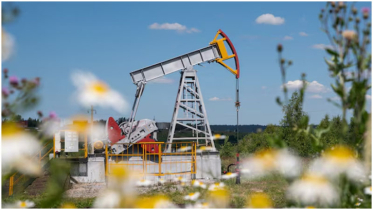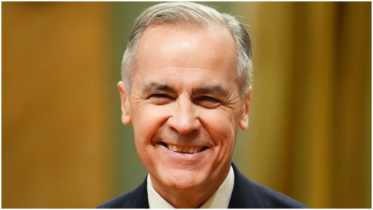G7 finance leaders meet with Ukraine, tariff concerns at fore

Finance ministers and central bank governors from the G7 nations are meeting in Alberta, Canada, this week, with the ongoing war in Ukraine and growing concerns over U.S. trade tariffs dominating the agenda.
Running through Thursday, the summit brings together officials from the world’s major advanced economies—Britain, Canada, France, Germany, Italy, Japan, and the United States—to discuss global economic conditions. A key focus will be finding common ground on support for Ukraine, as well as addressing controversial trade and industrial practices.
Ukrainian Finance Minister Sergii Marchenko will attend the talks, which come at a time of uncertainty over how the G7 will approach the Ukraine conflict, especially following U.S. President Donald Trump’s return to office earlier this year. Trump has taken a more conciliatory stance toward Russia, claiming peace talks between Russia and Ukraine will begin soon after his recent conversation with Russian President Vladimir Putin.
Trump's aggressive trade policy has also shaken the group’s unity. He has imposed broad tariffs on U.S. trading partners, including fellow G7 countries, sparking concern over global economic stability.
A source familiar with U.S. participation at the Banff meeting said Washington is not interested in issuing a formal joint statement unless it aligns with Trump administration priorities.
In the lead-up to the June G7 summit, Canadian Prime Minister Mark Carney has invited Ukrainian President Volodymyr Zelensky to attend. Marchenko is expected to address the media on Tuesday.
According to a U.S. Treasury spokesperson, Treasury Secretary Scott Bessent aims to steer the group toward “core economic issues,” such as correcting global trade imbalances and addressing unfair trade practices. One priority will be tackling China’s industrial overcapacity, which G7 leaders believe is harming domestic industries.
While the G7 regularly discusses key issues like trade, climate, and security, analysts caution that internal divisions—especially over U.S. tariffs—could make progress difficult.
“This is an unusual G7,” said Ananya Kumar, deputy director at the Atlantic Council. “The Trump tariffs are casting a shadow over everything.”
Trump recently imposed a blanket 10% tariff on most U.S. trading partners and additional duties on steel, aluminum, and automobiles. The uncertainty has already affected implementation of trade deals, including one with Britain.
The International Monetary Fund recently lowered its global growth forecast due to the impact of these tariffs, noting that countries like Canada could suffer economic setbacks.
Kumar noted that “the elephant in the room” remains whether the U.S. is willing to seriously engage in trade negotiations with other G7 members. While no major trade agreements are expected this week, officials believe the meeting will help advance dialogue.
Much attention will be on Treasury Secretary Bessent, who previously helped ease trade tensions between the U.S. and China.
“He’s shown he can be the adult in the room,” said Carl Weinberg, chief economist at High Frequency Economics. However, Bessent still faces pressure to prioritize the Trump administration’s agenda.
Progress on trade, experts say, could open doors for collaboration on other priorities, including continued support for Ukraine.
Canadian Finance Minister Francois-Philippe Champagne will co-chair sessions focused on the global economy, economic resilience, and Ukraine. Additional sessions will address financial crime and the growing role of artificial intelligence.
.png)




